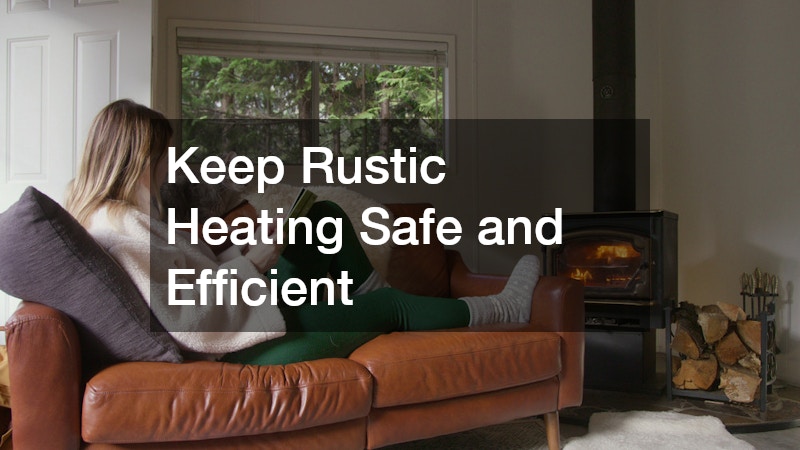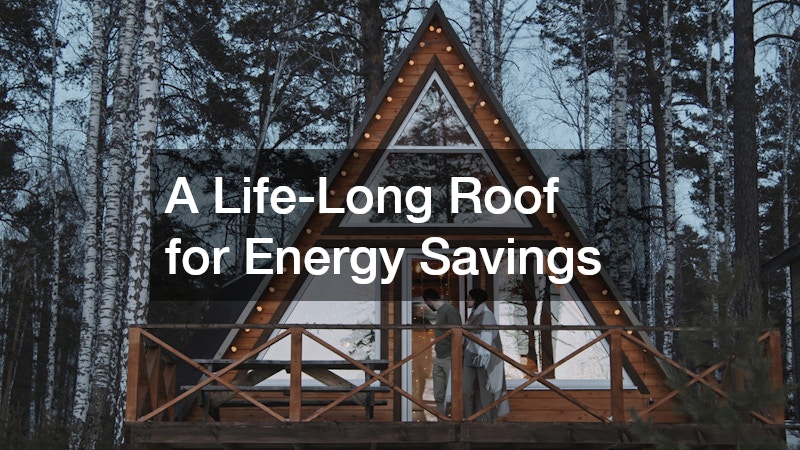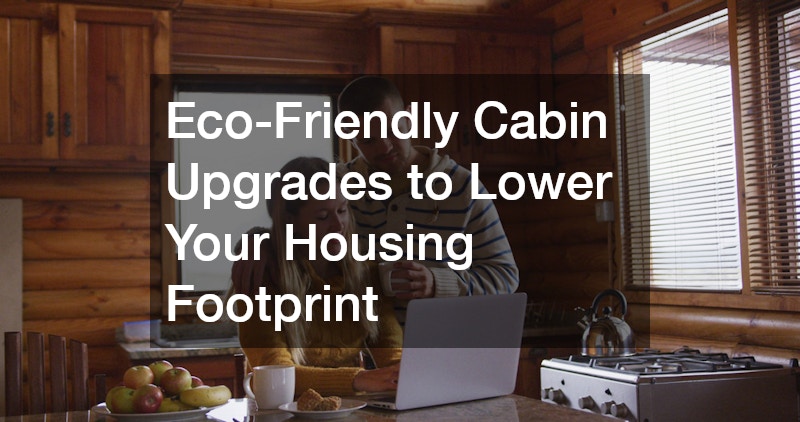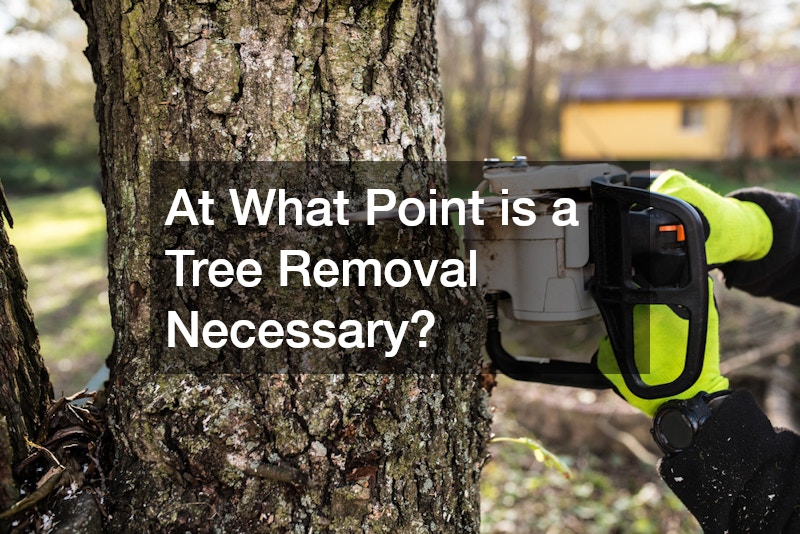With headlines increasingly focused on climate change and environmental challenges, our individual choices offer a way to make a positive impact. For cabin dwellers and homeowners alike, understanding how to maintain a healthy and sustainable housing footprint becomes imperative. There are various strategies that can not only enhance the quality of life within your cabin but also contribute to a greener planet.
Building an eco-friendly lifestyle starts with recognizing the interconnectedness of human activities and their environmental consequences. Each decision we make, whether related to energy consumption or resource usage, contributes to our overall housing footprint, a term that encapsulates the total environmental impact of our living arrangements. By optimizing every element of your cabin—from water systems to heating and electricity—you can reduce this footprint and promote sustainability for future generations.
Explore this blueprint for cabin owners who wish to embrace environmentally responsible practices. Focusing on key areas such as waste management, energy efficiency, and resource conservation, we will outline practical steps, necessary inspections, and maintenance tips vital for safeguarding not only our cabins but also the surrounding ecosystem. As you read on, engage with these concepts and consider how each small adjustment can collectively lead to a more sustainable and responsible living environment.
Maintain a Healthy and Sustainable Waste System
One of the first steps in reducing your home’s environmental impact is managing waste effectively. Regular septic inspections are crucial for homeowners relying on private sewage systems. Ensuring that your septic system operates efficiently prevents harmful leaks and environmental contamination while also prolonging the life of the system.
When your waste management system functions optimally, it minimizes the risks associated with overflows or failures, which can be costly and damaging to both health and the environment. Maintaining a healthy waste system means adhering to local regulations regarding disposal and making sure waste doesn’t seep into water sources or ecosystems nearby. By investing in quality septic inspection services, you’re not just complying with the law; you’re significantly reducing your overall housing footprint.
Additionally, consider implementing composting and recycling practices to further enhance your waste management strategy. By composting organic waste, you can both enrich your soil and decrease the volume of waste sent to landfills. Coupled with thorough septic inspections, a conscious approach to waste can dramatically reduce your carbon footprint, contributing to cleaner living conditions both inside and outside your cabin.

Catch Warning Signs in Your Water Supply
Your water supply is one of the most critical elements of your cabin’s infrastructure; therefore, understanding its status plays a significant role in maintaining a sustainable housing footprint. Regular well pump repairs are essential for assuring the purity and availability of your water. A well-maintained pump guarantees that clean water is always available for both consumption and use around your cabin.
It is important to regularly monitor your water for any warning signs, such as unusual tastes, smells, or color changes, as these may indicate contamination or mechanical issues. These problems can escalate quickly if not addressed, leading to unnecessary water waste and potential health risks. By being proactive about your water system, you protect both your health and the environment while reducing your home’s environmental impact.
Consider adopting filtration systems that purify your water supply. Filtration not only enhances taste and safety but also reduces the need for bottled water, further decreasing your environmental impact. Through vigilant monitoring and prompt repairs, you can assure that water remains a renewable and safe resource, significantly contributing to sustainability and self-sufficiency in your cabin lifestyle.
Cleaner Drinking Water, Naturally
Maintaining clean drinking water is vital for the health of you and your family, and it aligns with efforts to reduce your carbon footprint. Utilizing effective water filtration systems is essential for purifying your water sources and protecting your family from contaminants that could potentially harm them. Choosing the right filtration system will depend on your water source and specific needs, but it ultimately saves money and resources by reducing bottled water consumption.
Investing in a quality water filtration system can greatly reduce pollutants, including heavy metals, chlorine, and bacteria. This not only promotes better health and ensures the safety of your drinking water but also lessens your environmental impact. The production of bottled water has significant carbon emissions associated with its production and transportation, which adds to your housing footprint; thus, home filtration represents a more sustainable option.
Educating yourself on maintaining your filtration system is equally important to ensure its effectiveness over time. Regularly replacing filters and inspecting the system will maximize its efficiency and ensure that your water remains clean. By consciously selecting a water filtration system and integrating it into your living practices, you can significantly enhance your cabin’s sustainability and health while reducing your overall environmental impact.
Natural Defense Against Unwanted Guests
Pest control is an essential consideration when it comes to maintaining a healthy and sustainable cabin environment. A pest control service that employs eco-friendly solutions can help you address infestations without relying on hazardous chemicals that can harm the environment. Choosing natural alternatives not only protects your living space but also contributes to a lower housing footprint.
Preventive measures are just as vital as responsive pest control. By sealing openings and maintaining cleanliness in your cabin, you can effectively deter pests from making your space their home. Integrating these practices with periodic inspections from a pest control service will reduce the need for frequent treatments, helping to minimize environmental impact.
Biological pest control methods, such as beneficial insects, can further enhance your efforts in keeping unwanted guests at bay. These methods target pests without harming the ecosystem, aligning your pest management practices with the goal of sustainability. By prioritizing natural pest control solutions, you’re not only ensuring your cabin’s comfort and health but also significantly shrinking your home’s carbon footprint.

Keep Rustic Heating Safe and Efficient
When you choose rustic heating options such as wood stoves, you embrace a sense of warmth and nostalgia that enhances your cabin experience. However, it’s crucial to operate wood stoves safely and efficiently to minimize your home’s environmental impact. Regular maintenance and inspections ensure that your wood stove runs at peak efficiency while reducing harmful emissions.
In addition to routine maintenance, choosing sustainably sourced wood for your stove can dramatically reduce your carbon footprint. Managing your wood supply responsibly and opting for seasoned logs can enhance combustion and minimize smoke production. This choice contributes to cleaner air quality within your cabin while keeping your heating eco-friendly.
Proper ventilation is essential when using wood stoves. Insufficient air circulation can lead to incomplete combustion and higher levels of carbon monoxide, posing health concerns. By staying vigilant about the upkeep and operation of your wood stove, you can maintain warmth in your cabin while safeguarding both your health and housing footprint.
Choosing a Cleaner Fuel Source for Your Cabin
When it comes to heating your cabin, selecting the correct fuel can significantly impact your housing footprint. Propane is often a cleaner alternative compared to traditional fossil fuels, producing fewer emissions and maintaining efficiency. Furthermore, propane systems are often more controllable, allowing you to adjust heating levels based on specific needs and reducing unnecessary energy waste.
Installing propane appliances and systems may require an initial investment, but the long-term benefits of energy efficiency and lower emissions can lead to significant savings. Propane’s versatility allows it to be used for heating, hot water, and cooking, all contributing to a cohesive energy strategy that reduces your overall housing carbon footprint. Transitioning to this cleaner fuel source can bridge your current requirements with environmental needs.
Moreover, regular checks of your propane equipment ensure its safe operation and peak efficiency. Maintenance helps prevent leaks that can lead to safety hazards and environmental impact. By making an informed choice in heating fuel and ensuring regular upkeep, you contribute significantly to a sustainable cabin environment while shrinking your home’s footprint.

Fix Leaks Before They Drain Resources
Addressing leaks in your plumbing system is essential for maintaining an efficient water supply in your cabin. Plumbing repair services are crucial in preventing unnecessary water waste that can significantly increase your house’s footprint. Even small leaks can lead to substantial water loss over time, contributing to higher costs and negative environmental impacts.
If left unattended, leaks can cause structural damage to your cabin, leading to costly repairs and resource depletion. Regular inspections of your plumbing system can help identify potential issues before they escalate into major problems. By proactively addressing these concerns, you can maintain a well-functioning water system that aligns with sustainable practices.
In addition to addressing leaks, employing water-efficient fixtures can further reduce water usage. Low-flow faucets and toilets help maintain your water supply while boosting comfort and convenience. By investing in comprehensive plumbing repair and water-efficient upgrades, you not only enhance your cabin’s functionality but also reduce your overall housing footprint.
Power Your Cabin the Smart Way
Having access to reliable electricity is essential for any cabin, and working with a professional residential electrician can streamline this process. A certified electrician can ensure that your energy systems operate efficiently, minimizing waste and enhancing safety. Smart electrical management can significantly contribute to reducing your housing carbon footprint and improving the overall sustainability of your cabin.
By investing in energy-efficient appliances and LED lighting, you can reduce energy consumption and lower your electricity bills. Your electrician can help evaluate your current system and suggest upgrades that align with sustainable practices. Transitioning to modern electrical solutions allows you to harness renewable energy options, such as solar panels or wind turbines, to power your home sustainably.
Moreover, it’s important to conduct regular electrical inspections to identify potential safety hazards and ensure optimal functioning. Prompt identification and resolution of issues can prevent energy waste and enhance the longevity of your electrical system. By making informed choices regarding your cabin’s electrical needs, you can significantly reduce your housing footprint and promote sustainable living.
Cut Energy Loss From Above
One of the most frequently overlooked areas in energy conservation is attic insulation. Proper attic insulation is essential in preventing heat loss and maintaining a comfortable indoor climate. By enhancing insulation, you can dramatically reduce energy consumption and lower your home’s environmental impact, leading to both economic and environmental benefits.
Insulating your attic can help regulate indoor temperatures, reducing the need for heating and cooling systems that would otherwise be overworked. By preventing air leaks and heat transfer through the attic, your cabin heating and cooling systems can maintain efficient operating levels. Periodic audits of your insulation can identify areas for improvement, keeping your energy strategies robust.
Additionally, choosing sustainable insulation materials can further enhance your cabin’s environmental profile. Eco-friendly insulation options, such as cellulose or spray foam from renewable sources, contribute to a greener living environment. By optimizing attic insulation and making sustainable choices, you take significant strides toward reducing your overall housing footprint.

A Life-Long Roof for Energy Savings
Updating or installing metal roofing can greatly enhance your cabin’s energy efficiency while contributing to reduced maintenance costs. Metal roofing is known for its durability, longevity, and ability to reflect solar rays, leading to lower cooling costs during warmer months. By investing in a metal roof, you ensure that your cabin is equipped for long-term sustainability while minimizing its housing footprint.
Metal roofing offers an eco-friendly option since it’s often made from recycled materials. This choice not only reduces waste but also contributes to a significantly lower carbon footprint compared to traditional roofing materials. Moreover, its reflective properties help to regulate indoor temperatures, ultimately leading to less energy consumption for cooling and heating.
Metal roofs have a longer lifespan compared to other materials, reducing the need for replacement and associated waste over time. When your roofing needs repair or replacement, consider metal roofing options, which can provide both resource efficiency and long-term cost savings. By embracing metal roofing as part of your hut’s infrastructure, you enhance energy savings while contributing to a smaller overall housing carbon footprint.
Achieving a sustainable cabin lifestyle revolves around making informed decisions that collectively help reduce your home’s environmental impact. The choices you make regarding heating, water supply, and insulation can lead to significant savings while promoting conservation and efficiency.
Incorporating regular maintenance checks, opting for efficient appliances, and investing in sustainable materials can further enhance your cabin’s performance. These strategies offer immediate benefits for you and your family and protective measures for the environment to minimize your ecological impact. Recognizing and adjusting your housing footprint is a small yet impactful step toward a more responsible future.
Each small effort culminates in significant change, shaping a bond between humanity and nature. A commitment to sustainability in your housing choices is a powerful statement, one that echoes beyond your cabin and serves as a model for others to follow in building vibrant and responsible communities.


